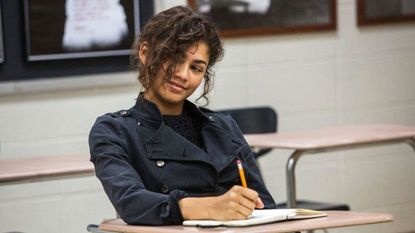
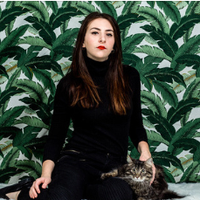
Warning—spoilers ahead.
Spider-Man: Homecoming works. It works partly because its supporting characters are so straightforward: Peter Parker has an obvious mentor (hi, Tony Stark!), a lovable best friend, a clear-cut villain who's bad but not entirely irredeemable, an uptight authoritarian named Happy, a school bully, and even a low-level criminal who's secretly good played by Donald Glover. The problem here is that every one of those characters are men.
By my count, there are three female characters in Spider-Man: Homecoming—Aunt May played by Marisa Tomei, Liz AKA Peter's crush (played by Laura Harrier), and the ever-sarcastic Michelle (played by Zendaya). None of their actions have any bearing on the plot at all. Literally zero. Just nothing.
The majority of the film's first third is spent with people talking about how hot Aunt May is—first Tony Stark ("What are you wearing? I hope something skimpy!"), then a bodega owner, and then a waiter. Literally, three or four times in a 130 minute movie, we get handed an "isn't Aunt May hot?" joke. Which, you know, is fine: Marisa Tomei is very attractive, and it's nice to see a woman over forty in Hollywood recognized for that. But throughout the movie, her role is never expanded beyond "Peter's hot aunt." She's simply an obstacle in his life—"Can't let Aunt May find out I'm Spider-Man!"—and someone to drive him to his friend's house. Search for two dimensions, and you'll only find one.
RELATED STORY
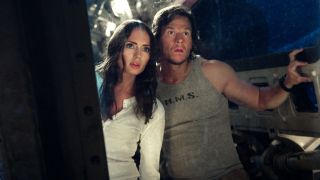
There Has Never Been a Worse Movie Than 'Transformers: The Last Knight'
Peter's crush, at least, gets a few moments where she's more than an object for ogling. Liz is the captain of the Scholastic Decathlon Team, which is clearly something she cares about deeply, and she seems to genuinely like Peter—whereas the popular girl in another movie might just be a "bitch" and nothing else. But still, Liz's story is entirely tied to Peter's—she is the object of his desire, the girl who has to be rescued because she can't rescue herself, and the link that brings him face-to-face with his nemesis. Liz is always reactionary; she doesn't do anything in this movie because she doesn't have to—she's simply the pretty face that Peter cares about and wants to impress. She drives the plot forward the same way any film prop might—an infinity stone, or enchanted spear, or what have you. Liz could literally be replaced by an object and the beats of the movie wouldn't change at all.
"More people need to understand why we're celebrating a movie like 'Wonder Woman,' where female characters don't exist entirely as moons orbiting a male hero's storyline."
And then there's Zendaya. She's the most frustrating of the bunch because she is the most luminous. Zendaya gets the most laugh-worthy lines—she's the Ally Sheedy of the would-be-Breakfast Club. I could watch her deadpan delivery for an entire film. But, again, her presence doesn't affect Peter's arc in any way, nor does she contribute any actions in the film itself. As Woman #3, Zendaya's one moment relevant to the plot is shouting, "My friends are in there!" while Peter scales the Washington Memorial to rescue the Woman #2 from death in time to get back so Woman #1 doesn't worry about him.
The filmmakers, bless their hearts, valiantly try to give Zendaya something that resembles a character arc: at the beginning of the movie, she says she doesn't have any friends, and at the end of the movie, she proclaims that she does. But if that moment is supposed to be cathartic or rewarding in any way, it fails because literally nothing in the movie happened that would change her friendless status. We don't see her opening up, or helping Peter on a mission, or joining the group to fight off a villain. She is the exact same funny, caustic girl she was at the beginning—only now the writers gave her a line that's supposed to be a replacement for character growth.
Stay In The Know
Marie Claire email subscribers get intel on fashion and beauty trends, hot-off-the-press celebrity news, and more. Sign up here.
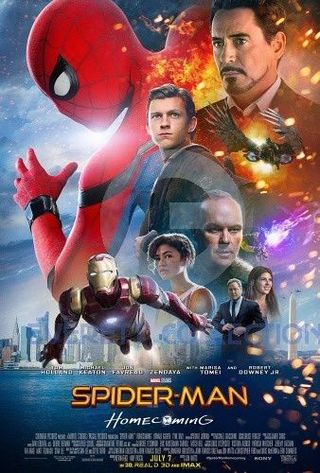
And look, this is not the shrill screeching of a harpy shrieking that Spider-Man: Homecoming is sexist. That's really not what I'm trying to say. The movie is fresh and entertaining—especially considering it's the third reboot in 15 years. In terms of ranking, I'd say better than both of Andrew Garfield's, and somewhere above the first Tobey Maguire and below the second (miles, and miles above the third, unless this metric is "number of ridiculous emo dance moves," in which case Spider-Man 3 is the clear winner). The point is: Hollywood is just far too comfortable with their beloved tropes. The young hero? A man. The cool mentor? A man. The funny sidekick? A man. The working-class villain just trying to look out for his family? A man. In the real world, working-class women also try to look out for their families sometimes! But Marvel is a big studio investing lots of money; and so the film is safe, as palatable for as many people as possible, and gives us two women of color love interests that we can celebrate as small steps forward.
I liked this movie. I really enjoyed it. I laughed out loud a bunch, and was completely charmed by the brilliant charisma of Tom Holland. But articles like this need to be written so more people understand why we're celebrating when we see a movie like Wonder Woman, where female characters don't exist entirely as moons orbiting a male hero's storyline. Spider-Man: Homecoming gave us a MILF, a perfect love interest, and a gorgeous outcast one metaphorical glasses removal away from being prom queen. Maybe the next reboot will give us a little bit more.
Follow Marie Claire on Facebook for the latest celeb news, beauty tips, fascinating reads, livestream video, and more.
Dana Schwartz is the author of three books and the host and creator of the history podcast NOBLE BLOOD. As a journalist, she’s written for Entertainment Weekly, GQ, Vanity Fair, The Washington Post, Marie Claire, and more. She currently works as a TV writer based in Los Angeles.
-
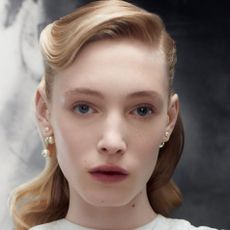 Bitten Lips Took Center Stage at Dior Fall 2024 Show
Bitten Lips Took Center Stage at Dior Fall 2024 ShowModels at the Dior Fall 2024 show paired bitten lips with bare skin, a beauty trend that will take precedence this season.
By Deena Campbell Published
-
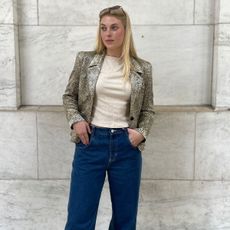 30 Spring Items That Solve My Expensive-Taste-on-a-Humble-Budget Dilemma
30 Spring Items That Solve My Expensive-Taste-on-a-Humble-Budget DilemmaSee every under-$300 spring item on my wish list.
By Natalie Gray Herder Published
-
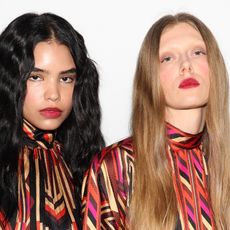 Your Makeup Won't Budge With These Setting Sprays
Your Makeup Won't Budge With These Setting SpraysPrepare for 12-hour wear.
By Sophia Vilensky Published
-
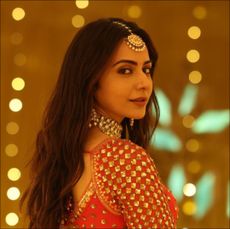 The Best Bollywood Movies of 2023 (So Far)
The Best Bollywood Movies of 2023 (So Far)Including one that just might fill the Riverdale-shaped hole in your heart.
By Andrea Park Published
-
 ‘Bachelor in Paradise’ 2023: Everything We Know
‘Bachelor in Paradise’ 2023: Everything We KnowCue up Mike Reno and Ann Wilson’s “Almost Paradise."
By Andrea Park Last updated
-
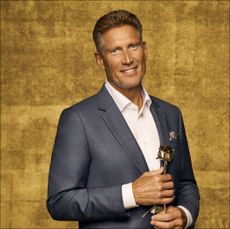 Who Is Gerry Turner, the ‘Golden Bachelor’?
Who Is Gerry Turner, the ‘Golden Bachelor’?The Indiana native is the first senior citizen to join Bachelor Nation.
By Andrea Park Last updated
-
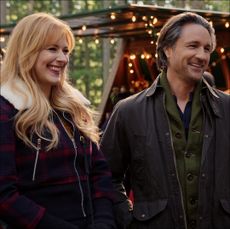 ‘Virgin River’ Season 6: Everything We Know
‘Virgin River’ Season 6: Everything We KnowHere's everything we know on the upcoming episodes.
By Andrea Park Last updated
-
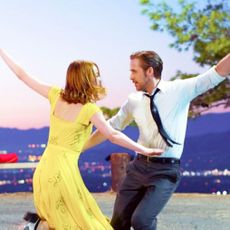 The 60 Best Musical Movies of All Time
The 60 Best Musical Movies of All TimeAll the dance numbers! All the show tunes!
By Amanda Mitchell Last updated
-
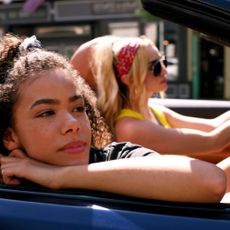 'Ginny & Georgia' Season 2: Everything We Know
'Ginny & Georgia' Season 2: Everything We KnowNetflix owes us answers after that ending.
By Zoe Guy Last updated
-
 The Unstoppable Alia Bhatt
The Unstoppable Alia BhattBollywood’s silver-screen darling is both at the top of her game and just getting started.
By Neha Prakash Published
-
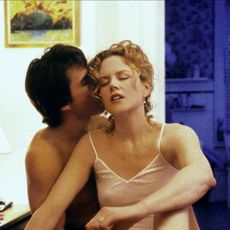 35 Nude Movies With Porn-Level Nudity
35 Nude Movies With Porn-Level NudityLots of steamy nudity ahead.
By Kayleigh Roberts Last updated